SUMMARY
This is AI generated summarization, which may have errors. For context, always refer to the full article.
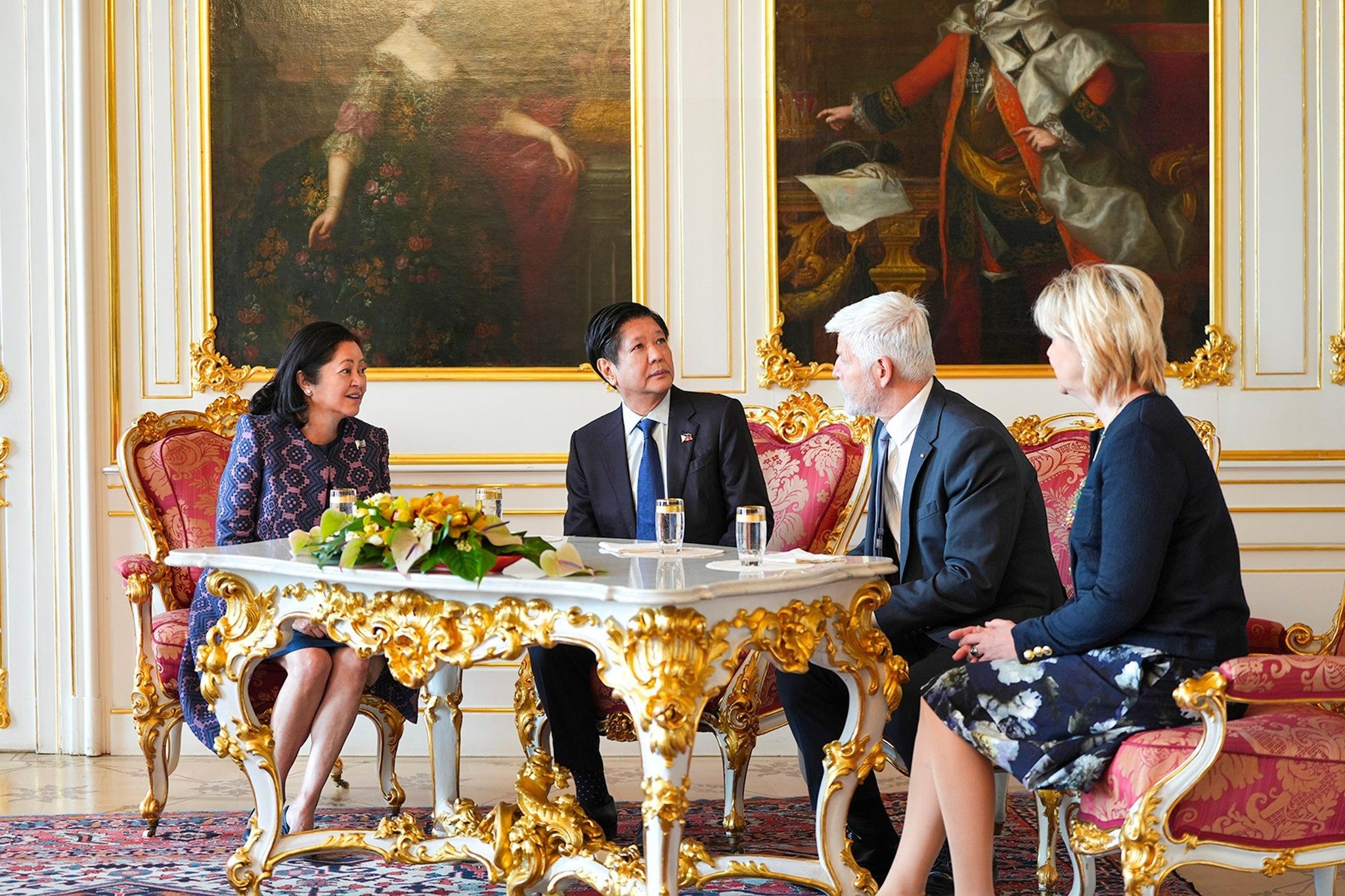
MANILA, Philippines – President Ferdinand Marcos Jr. returned to the Philippines on Saturday, March 16, after a nearly week-long stay in Central Europe.
Germany and the Czech Republic – his two stopovers during the trip – are the fourth and fifth countries he visited this year.
Rappler looks back at the visit and enumerates the most important aspects of the trip.
Significance of the visit
Malacañang made an effort to point out that this was the first time in a decade that a Philippine president set foot in Germany. The last Filipino chief executive to visit Berlin was the late Benigno Aquino III.
Marcos is also only the second Philippine president – after the late Fidel V. Ramos – to visit the Czech Republic.
His predecessor, Rodrigo Duterte, spent six years in office avoiding Europe. This was not a surprise, since Duterte threatened European Union diplomats of expulsion from the Philippines due to their governments’ criticisms of his bloody drug war.
Human rights issues
During the trip to Germany, Marcos was unable to escape the shadow of Duterte’s anti-narcotics campaign.
In the meeting between Marcos and German Chancellor Olaf Scholz, the latter asked the Philippine president about his stance on the International Criminal Court’s (ICC) ongoing probe of the previous administration’s human rights violations.
Marcos said the approach to the illegal drug problem in the Philippines “has changed significantly,” with his administration supposedly turning its back on violent methods. (Drug-related killings were no longer in the thousands, but there were still hundreds of fatalities recorded during the first year of the Marcos presidency, according to one watchdog.)

Marcos, however, insisted that the ICC has no jurisdiction over the Philippines, signaling the country’s continued refusal to cooperate with the international tribunal. (READ | TIMELINE: What the Marcos administration says about the International Criminal Court)
Outside the Federal Chancellery, media groups Reporters without Borders and Committee to Protect Journalists saw Marcos’ Germany visit as an opportunity to highlight the unresolved murder case of Filipino environmentalist and broadcaster Gerry Ortega.
Ortega, who reported on corruption in Palawan province, was assassinated in 2011. Justice has remained elusive since, as the suspect, former governor Joel Reyes, managed to stall the investigation and trial. He remains at large.
South China Sea
Marcos, similar to past foreign trips, raised the issue of escalating tensions in the West Philippine Sea in his meetings with European leaders.
He framed the maritime dispute as a matter close to Europe’s gut. He pointed out that the South China Sea handles 60% of the world’s trade, which makes it in the best interest of everyone to keep the vast waterway a safe passage for international commerce.
Malacañang said Marcos pitched to Germany a united front among like-minded countries “against any unilateral attempts to take territory from any other country.”
He thanked Scholz for Germany’s continued support, particularly on capacity-building of the Philippine Coast Guard. During Marcos’ stay, Germany affirmed its recognition of the 1982 United Nations Convention on the Law of the Sea, as well as the 2016 arbitral ruling that essentially invalidated Beijing’s all-encompassing claims to the South China Sea.
Coinciding with Marcos’ Germany visit, the two countries’ transport department signed a memorandum of understanding to strengthen maritime cooperation.
In the Czech Republic, Marcos also discussed the Philippine position on issues concerning the South China Sea.
President Petr Pavel said he supports rules-based order and the Philippine “entitlement to free movement of goods.”

Other areas of cooperation
Just like in past trips, Malacañang said the visit to Central Europe was an opportunity to beef up bilateral cooperation with the countries he visited.
Aside from the maritime cooperation agreement with Berlin, Manila also renewed a cooperation program between the Technical Education and Skills Development Authority and its German counterpart on the upskilling of Filipino workers.
In Prague, the Philippines signed a joint communique with the Czech Republic on the establishment of labor consultation mechanism between the two countries’ labor departments.
There are around 7,000 Filipinos in the Czech Republic, and Prague wants to double the quota of Filipino workers in the country, from 5,000 to 10,000, beginning May.
Investment deals signed
The President also met with executives of numerous large businesses in Central Europe during his six-day trip, including:
- German-owned company Siemens, which according to Malacañang expressed openness to “providing training for Filipino workers and businesses adapting to modern technologies”
- aerospace company Airbus, which committed to work with the Department of Transportation “on energy sourcing from Philippine landfills”
- Lufthansa Technik, whose expansion plan in the Philippines includes the “construction of a second hangar in Clark, amounting $150 million”
- Bosch, which Marcos hopes would participate in the country’s modernization program for public utility vehicles
- German wind and solar farms developer GmbH, which is supposedly planning to set up offshore wind farms worth P392 billion in the Philippines
He also attended the Czech-Philippines Business Forum in Prague, and urged Czech companies to “invest in the processing of the country’s critical minerals to mitigate the risks of global supply chain disruptions,” according to Malacañang.
In Germany, eight agreements were signed by the Philippines in numerous areas, such as health care, farming, solar energy, and digital insurance.
In the Czech Republic, Manila secured three memoranda of understanding, covering the semiconductor industry, information technology and business process management, and responsible artificial intelligence implementation.
The Palace said the deals had a “staggering amount of at least $4 billion.”
It is important to note that pledges secured during foreign trips are not guaranteed investments. They undergo various stages before they become realized investments. (READ | Gov’t says Marcos foreign trips attracted P4-T investments, but most yet to be realized)
On the day of his return to the Philippines from Central Europe, the Philippine Economic Zone Authority touted the approval of P2.8 billion in investments for March alone, almost half of which it attributed to Marcos’ foreign trips. (READ | Are the foreign trips really worth it?)

The President has often drawn flak over what critics describe as his jet-setting lifestyle. Even Duterte had taken a swipe at Marcos over this, accusing the incumbent leader of going abroad for leisure.
Marcos denied the allegations while in Germany, showing a copy of his itinerary to the traveling local media.
“Even in the places that I know where I’ve spent a lot of time with, I am not able to visit places used to frequent because we’re here to do [work],” he said. – Rappler.com
Add a comment
How does this make you feel?




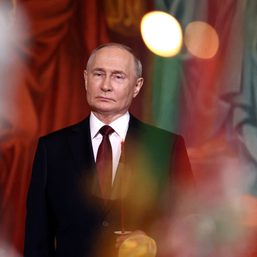



![[Just Saying] SONA 2024: Some disturbing points](https://www.rappler.com/tachyon/2024/07/TL-marcos-sona-points-july-23-2024.jpg?resize=257%2C257&crop=335px%2C0px%2C720px%2C720px)

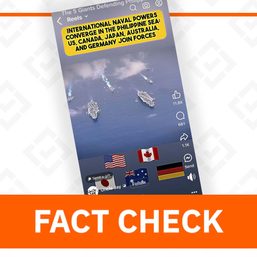
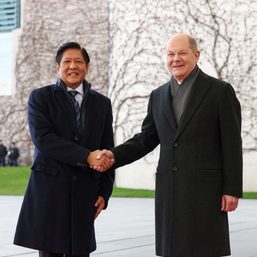
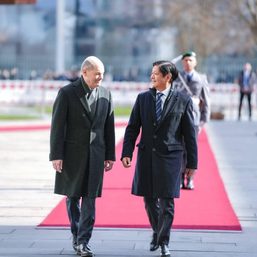
There are no comments yet. Add your comment to start the conversation.